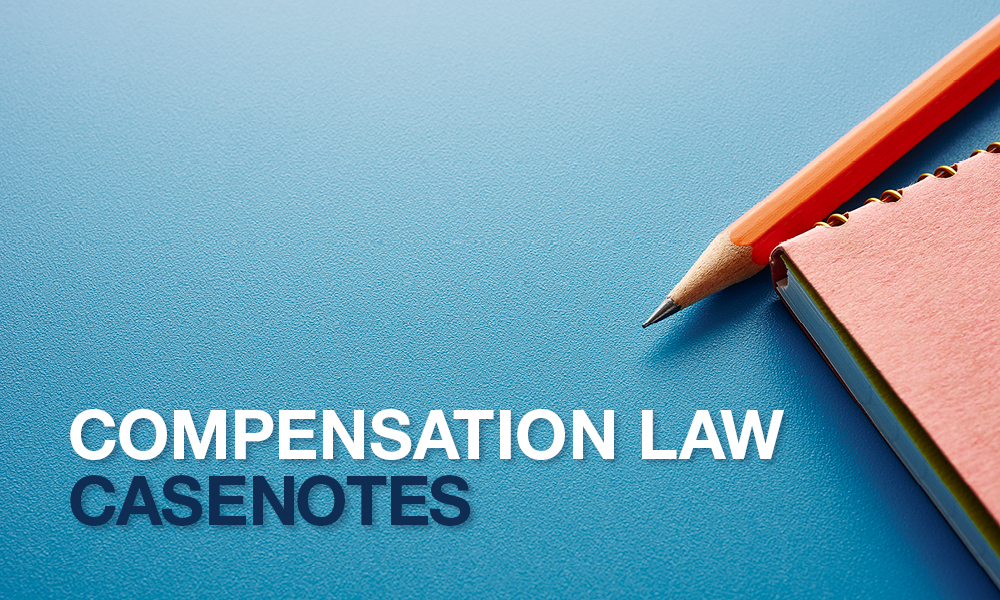In Adamson v Enever & Anor [2021] QSC 221 (31 August 2021), the Supreme Court considered the plaintiff’s financial and legal capacity with regard to receiving, investing and managing a settlement sum.
The plaintiff was a 63-year-old female injured in a motor vehicle accident and suffered many injuries, including a head injury with post-concussion syndrome. The settlement of the claim was subject to sanction.
Decision
- The plaintiff is not a ‘person under a legal disability’ as defined by s50(1A) of the Public Trustee Act 1978 to require a sanction of the settlement.
- The plaintiff does not have impaired capacity regarding a financial or legal matter relevant to receiving, investing, and managing the settlement sum.
Ratio
The court noted that the issue of ‘capacity’ is decision specific. By way of example, a person may lack capacity to agree to a complex settlement of a large commercial dispute, but not to settle a simpler claim. Therefore, it is necessary to define the legal or financial ‘matter’ about which there is a capacity issue. To seek a broad determination as to general legal capacity is not sufficient.
The legal definition of capacity pursuant to the Guardianship and Administration Act 2000 has three limbs:
- capable of understanding the nature and effects of decisions about the matter
- capable of freely and voluntarily making decisions about the matter
- capable of communicating the decisions in some way.
The judgment referred to the ‘Queensland Capacity Assessment Guidelines’ which set out five principles to apply when assessing an adult’s capacity:
- always presume an adult has capacity
- capacity is decision specific and time specific
- provide the adult with the support and information they need to make and communicate decisions
- assess the adult’s decision-making ability rather than the decisions they make
- respect the adult’s dignity and privacy.
Psychiatric medico-legal evidence stated the plaintiff did not have capacity to manage complex or large sums without assistance. However, Applegarth J considered, in accordance with the previously stated principles, that the plaintiff should be assumed to have capacity – she should not be assumed to lack capacity because of her age, limited literacy, limited formal education or her physical or intellectual impairments. His Honour acknowledged some deterioration in the plaintiff’s mental health, but considered this was an issue for an enduring power of attorney rather than a capacity determination about a specific ‘matter’.
Applegarth J focused a significant amount of time on the conduct of the plaintiff’s solicitors and their legal fees. Applegarth J was critical of the plaintiff’s solicitors and the apparent lack of advice provided to the plaintiff on matters highly relevant to the issue of capacity. His Honour was further concerned to ensure the plaintiff was aware of her ability to obtain a costs assessment – and, her ability to challenge the validity of the client agreement, and Shine Lawyers’ fees, so as to minimise the difference between the standard costs recoverable from the insurer, and the costs she is obliged to pay Shine Lawyers.
The court concluded that the plaintiff had capacity to understand the nature and effect of the settlement that had been reached. It was further concluded that, having obtained adequate and appropriate support for decision-making about the investment of the net proceeds of settlement, she had capacity in relation to that issue. The court also concluded that the plaintiff had capacity to make decisions about the financial and legal matters associated with finalising questions of costs as between her and Shine Lawyers.
This compensation law casenote appears courtesy of Travis Schultz & Partners (TSP). As part of the firm’s commitment to providing ongoing legal education, TSP practitioners review relevant judgments and prepare case summaries for the legal profession. A free searchable catalogue of compensation law casenotes is available at schultzlaw.com.au/case-summaries (registration required). The full version of the judgments can be found at austlii.edu.au.













Share this article